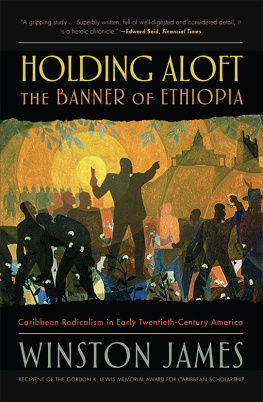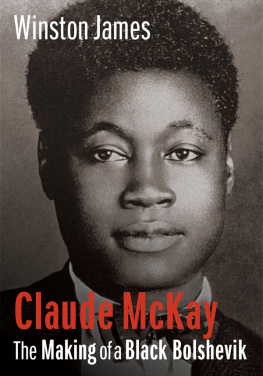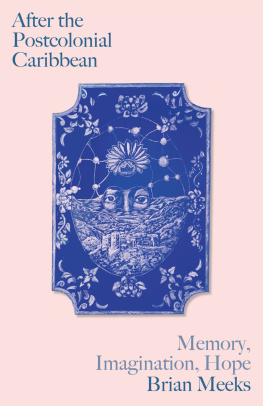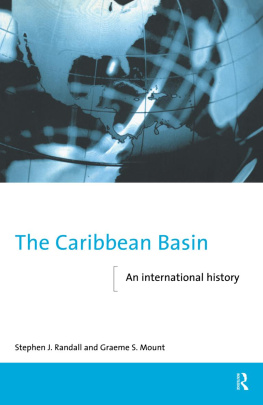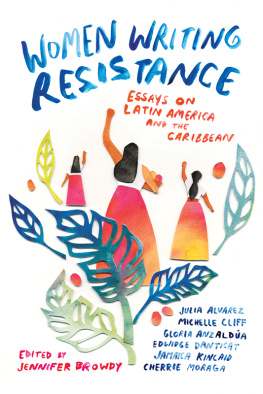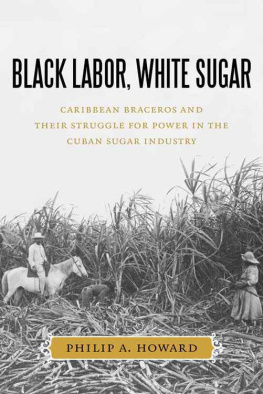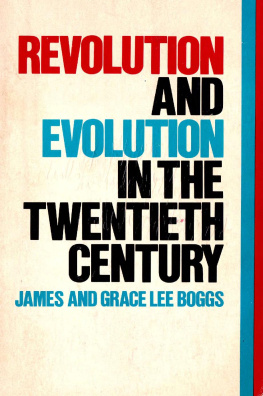Contents

Holding Aloft the
Banner of Ethiopia
Holding Aloft the
Banner of Ethiopia
Caribbean Radicalism in
Early Twentieth-Century America

WINSTON JAMES

This paperback edition first published by Verso 2020
Paperback edition first published by Verso 1999
First published by Verso 1998
Winston A. James 1998, 1999, 2020
All rights reserved
The moral rights of the author have been asserted
1 3 5 7 9 10 8 6 4 2
Verso
UK: 6 Meard Street, London W1F 0EG
US: 20 Jay Street, Suite 1010, Brooklyn, NY 11201
versobooks.com
Verso is the imprint of New Left Books
ISBN-13: 978-1-78873-645-9
ISBN-13: 978-1-78873-699-2 (UK EBK)
ISBN-13: 978-1-78873-700-5 (US EBK)
British Library Cataloguing in Publication Data
A catalogue record for this book is available from the British Library
Library of Congress Cataloging-in-Publication Data
A catalog record for this book is available from the Library of Congress
Typeset by SetSystems Ltd, Saffron Walden, Essex
Printed and bound by CPI Group (UK) Ltd, Croydon, CR0 4YY
To my mother and father,
Ruby Cottrell James and Reginald James,
and
to the memory of
Lauretta Tomlinson Campbell and Uriah Campbell
In every field of our American life we find the West Indian pushing ahead and doing all in his power to uphold the dignity of the Negro race. In every industry, in every profession, in every trade, we find this son of the islands holding aloft the banner of Ethiopia.
When the great day of our liberation comes, we will find the West Indian foremost in the ranks of those fighting with his armor on and his sword raised aloft.
Fenton Johnson, 1919
As to the neglect you refer to, I think it may be traced in part to the old hostility between West Indian and American Negroes. Garvey and myself were no doubt considered upstarts by native-born Negro intellectuals in daring to advance solutions for the problems of American Negroes. The Garvey movement, however, being the greatest mass movement in the history of Negro America, could not be ignored, nor could its founder. Another possible explanation may have been our radicalismboth racial and social. [William Monroe] Trotter, too, has been very much ignored.
Cyril Briggs to Theodore Draper,
March 17, 1958
Contents
POSTSCRIPT
Harold Cruse and the West Indians: Critical Remarks on The Crisis of the Negro Intellectual
MAPS
ILLUSTRATIONS
Illustrations can be found between text
I n June 1997, I sent off the final version of Holding Aloft the Banner of Ethiopia to my publisher in London. The book issued from a curious phenomenon, namely, the extraordinary presence of Caribbean people within radical movements within the United States in the early part of the twentieth century. It was during my research on the life and times of Claude McKay (18891948)the Jamaican-born wandering man of letters and radical politicsthat I noticed this intriguing presence. Carib-beans were conspicuously there within the socialist movement (including the Communist Party), and they were conspicuously there within black nationalist organizations, such as the early African Blood Brotherhood and the Universal Negro Improvement Association. Not only that, Car-ibbeans founded and led many of these organizations and comprised a disproportionate number of their membership. They also constituted a disproportionately large part of the black radical intelligentsia in the United States. I was surprised and disappointed that the phenomenon had not been better documented and analyzed. And I was also shocked and disappointed that the most influential discussion of Caribbean people and their relations to American radicalism, Harold Cruses The Crisis of the Negro Intellectual (1967), is so tendentious and appallingly unreliable.
As someone who has long been interested in the history of the Caribbean, its peculiar civilization, and its people (at home and abroad), Holding Aloft the Banner of Ethiopia was a book I wanted to read, but discovered that I had to write it in order to do so because it did not exist. Frankly, I didnt intend to write the book, at least not at that point in time; my primary preoccupation was the revision and expansion of my McKay dissertation for publication. Holding Aloft started life as merely a chapter of the thesis, attempting to place McKay within his wider historical context. I then extracted it and sent it to New Left Review, my favorite journal since my undergraduate days, and I was flattered that they were very keen on publishing it. I told them, however, that I needed to do some more work on it, that it needed refinement and expansion; it then mushroomed into a small book, which further grew and would have continued to grow beyond its more than four hundred pages had Verso, the book publishing arm of New Left Review, and others not insisted that I ought to let it go. And so I did.
I undertook three primary tasks in the book. First, I attempted to document as assiduously as I possibly could, the presence of Caribbeans, men as well as women, in radical movements in the United States; second, I attempted to outline and analyze the ideological currents within which they were involved; and third, and perhaps most importantly, I attempted to explain their attraction to such movements and their prominence within them. The process of doing these things was rather complicated. But in essence, apart from explaining the migration of Caribbean people to the US and mapping the movements that they were engaged with, I also needed to understand and document the societies from which the migrants came, who the migrating men and women themselves were (educationally, occupationally, culturally, politically), how they responded to American society, especially in its racial aspects, and the type of America they entered and encountered in the early part of the twentieth century.
At a more general and theoretical level, the book attempts to highlight and demonstrate the heterogeneity as well as the unity of the Caribbean; the significant differences between the Spanish-speaking and non-Hispanic parts of the archipelago and continental enclaves; the significant differenceseven within areas of the Caribbean broadly conceived as similarbetween Barbados and Jamaica, for instance, within the Anglophone Caribbean, between Cuba and Puerto Rico, for instance, within the Spanish-speaking Caribbean. And all of these differences emerged from under the overarching and common experience of colonial domination at the hands of Europe and later the United States.
Holding Aloft is a book that aspires to be genuinely about the Caribbean and Caribbean migrants, not just about the English-speaking Caribbean and its diasporaeven though it provided the largest regional contingent that entered the USbut about all of the Caribbean and its diaspora in the United States before the Great Depression. Thus its interests extend from the Jamaican Marcus Garvey to the Belizean Samuel Haynes and Surinamese Otto Huiswoud. The book is as much concerned with the role played by the Cuban patriot Paulina Pedroso as it is about that of the Jamaican Amy Jacques-Garvey; it is as much about Danish Virgin Islander Hubert Harrison as it is about the Cuban Jos Mart; it is about the Barbadian Richard B. Moore and the Kittian Cyril Briggs, as it is about the Union Islander Hugh Mulzac, the Puerto Ricans Jess Coln and Arturo Schomburg. It deals with the Hispanic Caribbean migration and migrants of the nineteenth and early twentieth centuries from Cuba and Puerto Rico and it deals with those from the non-Hispanic Caribbean, who came, primarily, from the British Caribbean. It deals with Puerto Ricans in New York, and it deals with Cubans in Tampa. In short, it attempts to overcome the historiographical and analytical balkanization of these experiences, while crossing cultural boundaries.

